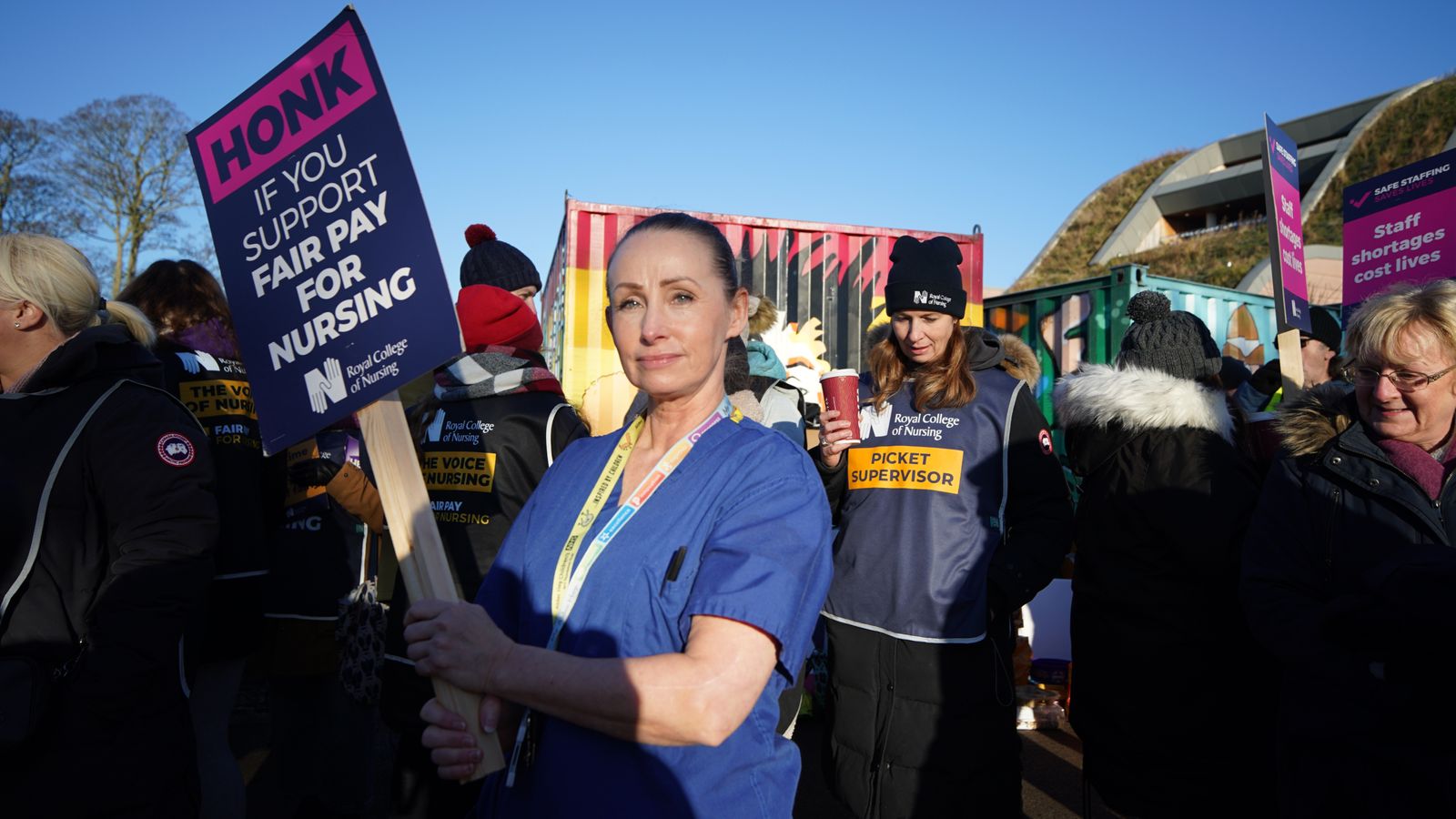Health Secretary Steve Barclay writes to unions for fresh strike talks – but still won’t move on pay

Health Secretary Steve Barclay is understood to be writing to the unions to request fresh talks over strike action – but sources say he still won’t discuss increasing their wages.
Both nurses and ambulance workers are set to stage walkouts this week amid ongoing anger over pay and working conditions.
The chief of the Royal College of Nursing (RCN), Pat Cullen, had suggested strikes would be called off if Mr Barclay opened up discussions over wages.
But a government source insisted he would only talk about “patient safety and non-pay issues”.
Politics live: Ruling on Rwanda scheme expected this morning
The RCN is demanding an inflation matching pay rise plus 5% for its members, but the government will only offer around 4%, as recommended in the summer by an independent pay review body – before inflation hit record highs.
Asked last night about reports Downing Street had blocked the idea of a one off payment to nurses to prevent the strikes, Mr Barclay told reporters his conversations with Number 10 would remain private.
Meanwhile, the minister questioned the safety of the upcoming ambulance strikes.
Staff will still respond to the highest level of emergencies and are making plans for cover, while the government plans to bring in the armed forces to fill some of the gaps, with 1,200 troops expected to be deployed.
Advertisement
Department heads will also meet later this morning to discuss the strikes at an emergency government Cobra meeting.
But Mr Barclay claimed “the practical arrangements” had still not been confirmed by the unions at this late stage.
“It’s important that the trade unions honour the commitments that they’ve given to safeguard both life-threatening responses and emergency responses,” he said.
“It’s important that everyone prioritise patient safety, and in particular, those life-threatening and emergency calls.”
Unite leader Sharon Graham, who represents some ambulance workers, said the health secretary would “have to carry the can if patients suffer”, telling the Daily Mirror he was “holding the country to ransom” by refusing to discuss pay.
Unions have also attacked the plans to use Armed Forces personnel, saying they are not “sufficiently trained” and could even be a “hinderance”.
Senior military officials have also criticised the move, with the head of the armed forces, Admiral Sir Tony Radakin, warning it was “perilous” to expect them to be used routinely to cover for strikes.